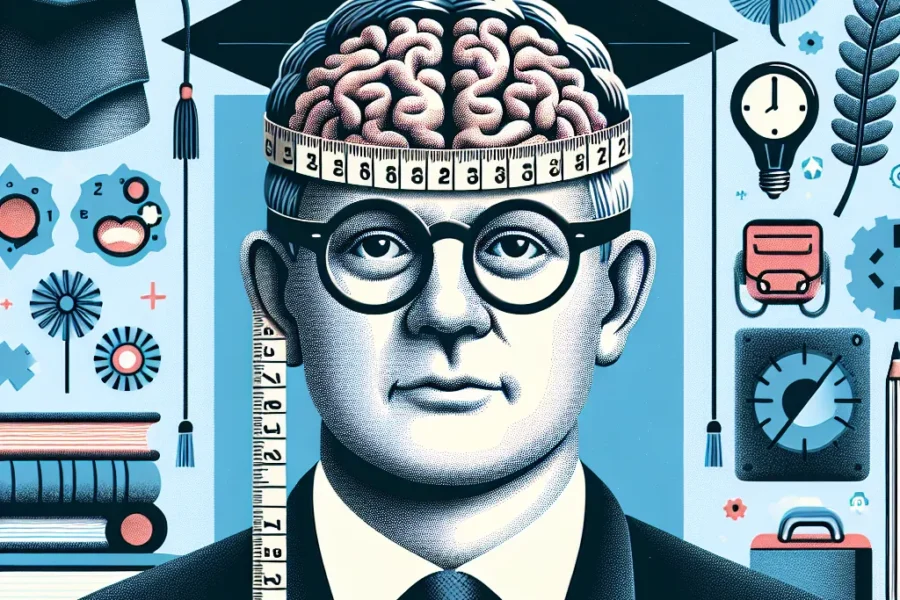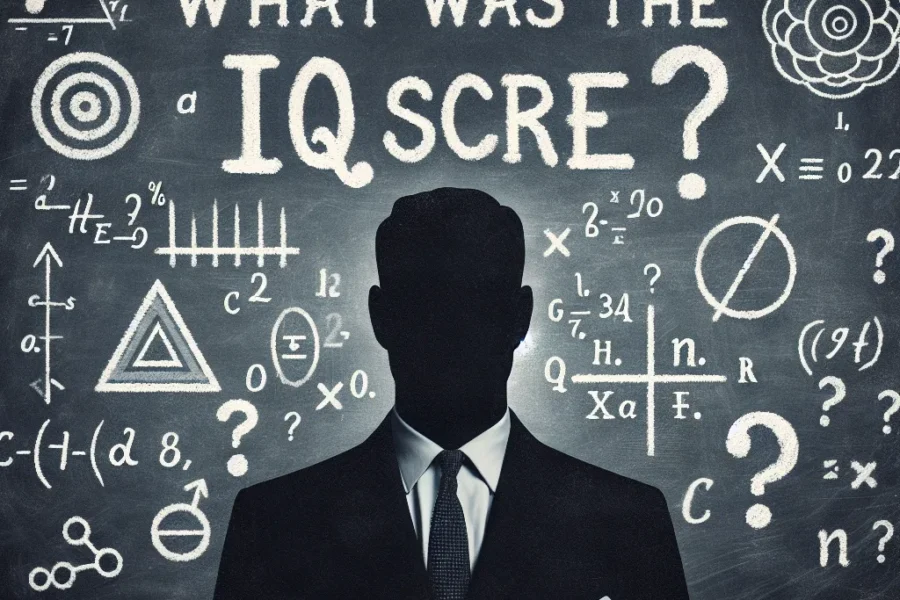In the annals of American history, few presidents have left as indelible a mark as Lyndon B. Johnson. Serving as the 36th President of the United States, Johnson’s tenure was characterized by sweeping legislative achievements, far-reaching social reforms, and the profound turmoil of the Vietnam War. One question that frequently arises among historically curious minds is: What was Lyndon B. Johnson’s IQ score?
If you are looking for legitimate IQ Tests which pass the entry bar for Mensa, see our IQ Tests.
To begin exploring this topic, it’s critical to understand the context in which IQ scores are evaluated and their relevance to an individual’s intellectual capabilities. Intelligence Quotient (IQ) scores are derived through standardized tests designed to measure human intelligence. While these tests are among the most recognized methods for assessing cognitive abilities, it’s important to remember that they capture just one facet of a person’s overall competencies and potential.
Lyndon Baines Johnson, born on August 27, 1908, in Stonewall, Texas, was a figure whose life was shaped by his experiences and the circumstances of his time. His commanding presence and remarkable legislative acumen suggest a person of significant intelligence and capability. However, there isn’t a wealth of documented evidence pointing directly to his IQ score. Despite the extensive data collected about Johnson throughout his political career, including during his presidency from 1963 to 1969, specific documentation of his IQ remains elusive.
Historians and biographers who have studied Johnson’s life have often highlighted his cunning political strategies, his deep understanding of legislative processes, and his adeptness in negotiating with Congress. These skills reflect a high level of practical intelligence, instinct, and an ability to work effectively within complex political systems. Considering the multitude of factors influencing intelligence, it would be reductive to equate Johnson’s abilities solely with a single numerical value.
One way to gauge Johnson’s intellectual prowess is by examining his educational background and career trajectory. LBJ graduated from Southwest Texas State Teachers’ College (now Texas State University) in 1930. His path to politics was set early on, marked by a brief stint as a schoolteacher before immersing himself in the political arena. Johnson’s teaching experience likely contributed to his adeptness in communication and his capacity to articulate and defend his policies and viewpoints effectively.
Throughout his political career, Johnson demonstrated an extraordinary ability to leverage his knowledge and influence to achieve significant legislative successes. Perhaps most notably, his tenure as Senate Majority Leader from 1955 to 1961 exhibited his strategic brilliance. Navigating the legislative labyrinth, Johnson was able to foster alliances, manage conflicts, and drive forward the agendas that defined his leadership style.
The legislative milestones Johnson achieved as president further underscore his intelligence and practical capabilities. The passage of civil rights legislation, the Great Society programs, and initiatives such as Medicare and Medicaid evidenced his deep understanding of social issues and his commitment to social reform. These accomplishments required not only intelligence but also a profound empathy and perseverance, qualities that transcend traditional measures of IQ.
Returning to the quest for Lyndon B. Johnson’s explicit IQ score, it becomes clear that while abundant anecdotes and accounts reflect his intellectual strengths, concrete numerical data remain scant. This is a not uncommon scenario among historical figures. Often, the breadth of their impact and the scope of their achievements provide a more comprehensive understanding of their intellectual legacy than an isolated metric.
Furthermore, discussions about IQ scores and their relevance to presidential performance are complex. Many argue that the qualities necessary for effective leadership—such as emotional intelligence, moral integrity, empathy, decisiveness, and political acumen—are not adequately captured by standard IQ tests. This is particularly evident in the case of Lyndon B. Johnson. His legislative genius, his empathy-driven policies, and his navigation through one of America’s most contentious eras speaks to a depth of intelligence that extends beyond standard assessments.
Additionally, it is worth noting that the concept of IQ itself has evolved and undergone significant critique over the decades. The initial impetus behind IQ testing as formulated in the early 20th century was deeply flawed by contemporary standards, often marked by biases and limitations in scope. Modern understandings of intelligence emphasize multiplicity and diversity in cognitive abilities, recognizing that a single metric cannot capture the full extent of human intelligence.
In conclusion, while there is curiosity surrounding the precise IQ score of Lyndon B. Johnson, the available historical and biographical records do not provide a definitive answer. Johnson’s legacy, marked by his towering achievements and complex leadership, suggests an individual of remarkable intelligence, one that extends well beyond a single numerical value. As we reflect on his contributions and leadership, it is evident that his intelligence was multifaceted, encapsulating a blend of practical skills, empathy, and strategic foresight.
For those interested in understanding their own cognitive capabilities aligned with Mensa standards, you may wish to explore our IQ Tests. However, remember that intelligence, much like leadership, is a complex and nuanced tapestry, rich with diverse and interconnected attributes. Johnson’s life and career serve as a compelling testament to this intricate and multifaceted nature of human potential.



Leave a Comment